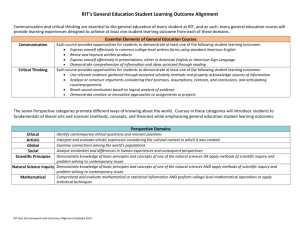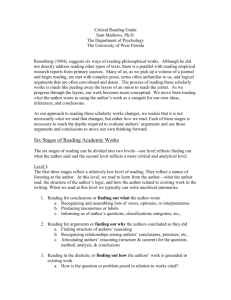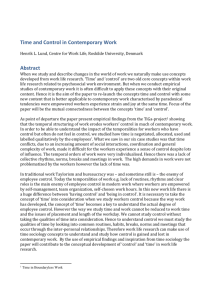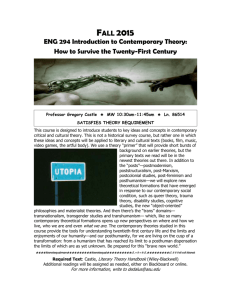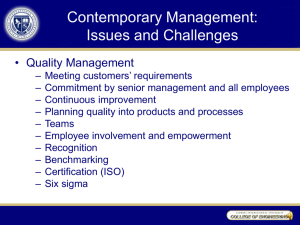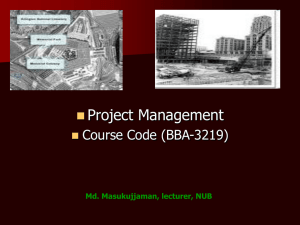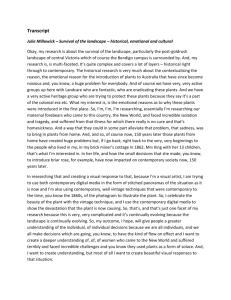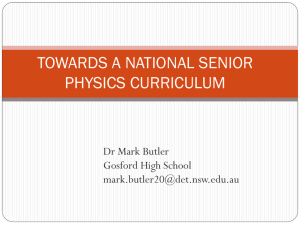Grade 9 Overview
advertisement
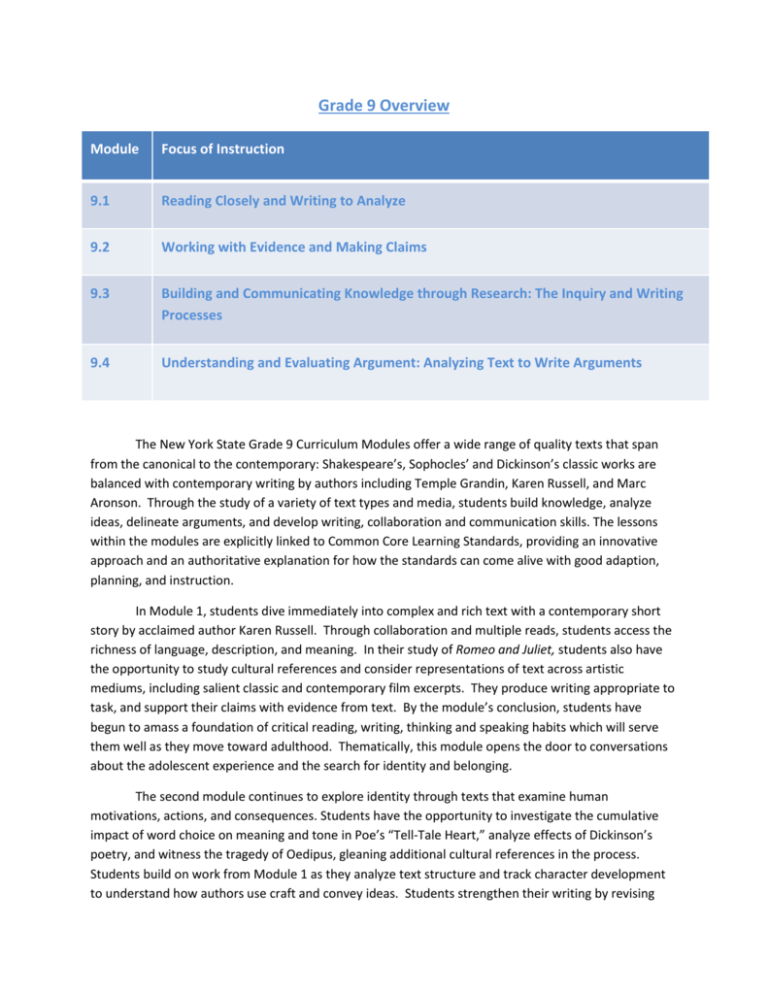
Grade 9 Overview Module Focus of Instruction 9.1 Reading Closely and Writing to Analyze 9.2 Working with Evidence and Making Claims 9.3 Building and Communicating Knowledge through Research: The Inquiry and Writing Processes 9.4 Understanding and Evaluating Argument: Analyzing Text to Write Arguments The New York State Grade 9 Curriculum Modules offer a wide range of quality texts that span from the canonical to the contemporary: Shakespeare’s, Sophocles’ and Dickinson’s classic works are balanced with contemporary writing by authors including Temple Grandin, Karen Russell, and Marc Aronson. Through the study of a variety of text types and media, students build knowledge, analyze ideas, delineate arguments, and develop writing, collaboration and communication skills. The lessons within the modules are explicitly linked to Common Core Learning Standards, providing an innovative approach and an authoritative explanation for how the standards can come alive with good adaption, planning, and instruction. In Module 1, students dive immediately into complex and rich text with a contemporary short story by acclaimed author Karen Russell. Through collaboration and multiple reads, students access the richness of language, description, and meaning. In their study of Romeo and Juliet, students also have the opportunity to study cultural references and consider representations of text across artistic mediums, including salient classic and contemporary film excerpts. They produce writing appropriate to task, and support their claims with evidence from text. By the module’s conclusion, students have begun to amass a foundation of critical reading, writing, thinking and speaking habits which will serve them well as they move toward adulthood. Thematically, this module opens the door to conversations about the adolescent experience and the search for identity and belonging. The second module continues to explore identity through texts that examine human motivations, actions, and consequences. Students have the opportunity to investigate the cumulative impact of word choice on meaning and tone in Poe’s “Tell-Tale Heart,” analyze effects of Dickinson’s poetry, and witness the tragedy of Oedipus, gleaning additional cultural references in the process. Students build on work from Module 1 as they analyze text structure and track character development to understand how authors use craft and convey ideas. Students strengthen their writing by revising and editing, and refine their speaking and listening skills through debate and discussion-based assessments. In a digital world, students have access to an unprecedented amount of information. An ability to sort through information to determine relevance and reality is vital to student success. The third module engages students in an inquiry-based research process using a rich extended text, such as Animals in Translation, to generate and refine ideas that lead to a process of individually driven inquiry, research, and writing. This process begins collaboratively, and guides students through finding and assessing information, thinking critically, determining questions worth asking, and formulating a research paper on a topic of the students’ choosing. Module 4 shows where an inquiry process can lead, with Sugar Changed the World, a text derived from inquiry and collaboration of its authors. This module provides students with the opportunity to learn something new about the past that informs the choices they make today, and it invites students to consider the ethics and consequences of their decisions. Students move through this text with a critical eye, tracking the development and efficacy of the authors’ arguments, while growing considerable world knowledge. They apply this knowledge when reading additional contemporary arguments thematically linked to the central text. They then develop their own argument, making a claim and using the strategies for writing that they implemented in Module 3 and studied in Module 4.

